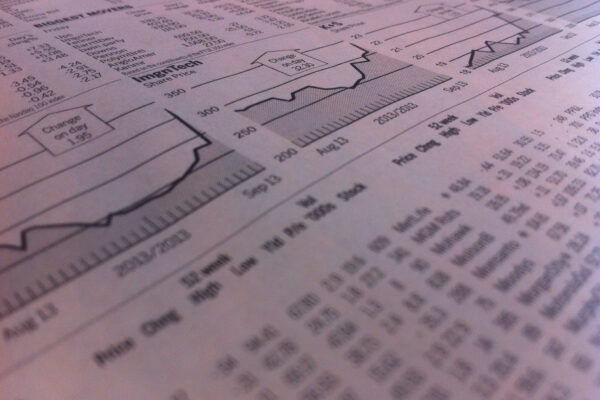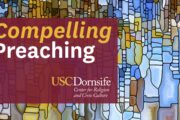This post originally appeared on Trans/Missions, the USC Knight Chair in Media and Religion blog.
Stoxx Europe Christian Index recently launched to allow enterprising Christian capitalists to exercise their moral principles in the context of the free market. A press release announcing the fund notes that it was developed for a “growing number of Christian market participants who wish to invest in accordance with their religious beliefs…[and] the new index provides a broad representation of European companies who act responsibly on an ethical, environmental, social and economical level; and are therefore in-line with Christian values.”
This story has gotten scant coverage in the United States, beyond a few briefs quoting the company press release. But there is a rich field of journalistic inquiry to be mined here.
Yet to be explored in the reporting around Stoxx is that great monolith, “Christian values.” Companies like Nestle are Christian enough to be included in the fund despite decades of boycotts over questionable practices regarding the marketing of infant formula in the developing world. The New York Times points out that the environmental impact of companies like BP and Royal Dutch Shell doesn’t seem to warrant their exclusion from the list.
The formula developed to vet companies for inclusion is designed to ensure that they are not making money (or not making too much money) from weapons, pornography, birth control, gambling or tobacco. This roster of sins institutionalizes and validates only the most conservative ethical perspective within the religion–i.e. the one concerned primarily with personal and sexual morality. Further, it essentially reduces 2,000 years of Christian moral teaching to a marketing maxim: the imperative here isn’t “thou shalt manage production in an ethical manner” but “thou shalt not produce something really, really bad.”
Then again, maybe the Stoxx fund does take other ethical considerations into account. The investment firm leading the independent committee that selects companies for inclusion in the fund, CBIS, has a well-developed social responsibility policy. Still, articles in the Financial Times and the San Francisco Chronicle note that these Christian-branded financial products and services were developed in response to investor demand for ethical investment options in the wake of the financial crisis. Surely other reporters will not let this curious association stand without further investigation.
The financial crisis was not a result of corporations’ making money off porn, guns or gambling, so the Stoxx fund does nothing to address the real source of investors’ fears. Actually addressing the root causes of the global financial meltdown would require not only taking a hard look at the way companies do business but also at the regulations that determine how they operate. Perhaps the foundational assumptions of the free market itself deserve closer scrutiny. But that systemic analysis probably isn’t high on the agenda of the investors Stoxx may be wooing with this fund–conservative Christians who, in the United States, often overlook structural solutions to social problems in favor of individual responsibility.
Does this mean that branding a financial product “Christian” is just a cynical marketing ploy? The writer for the San Fransisco Chronicle got it right when she reminded us that in this business as in any business, old wisdom offers the best advice: Let the buyer beware.
Photo Credit: Andreas Poike/Flickr
Brie Loskota is the former executive director (2016-2021) of the USC Center for Religion and Civil Culture.







